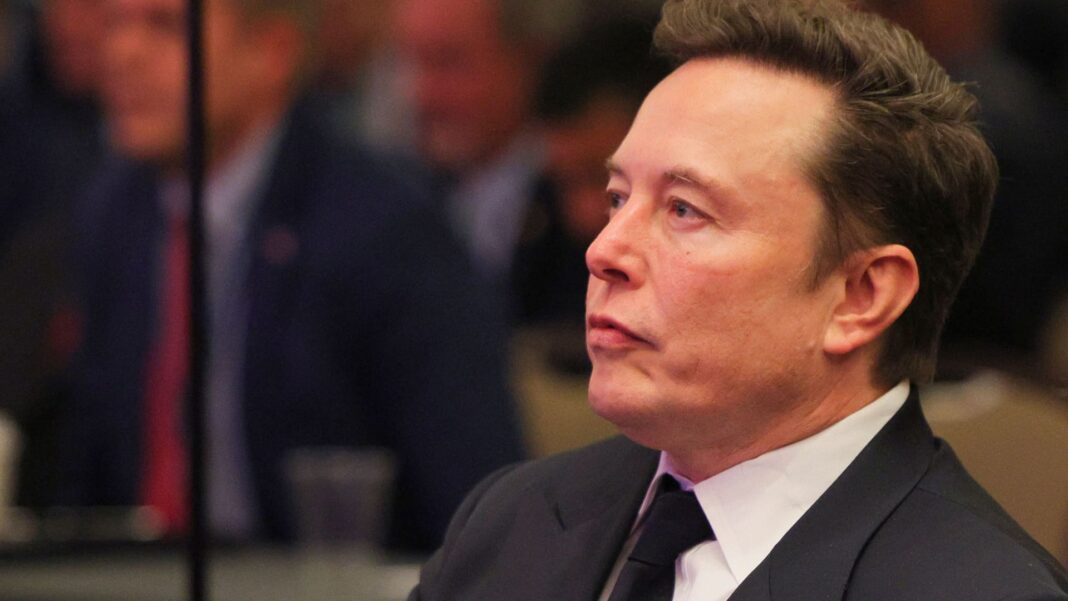[
]
Tesla CEO and X owner Elon Musk sits as U.S. President-elect Donald Trump meets with House Republicans on Capitol Hill in Washington, U.S., November 13, 2024.
Brian Snyder | Reuters
Tech billionaire Elon Musk said Wednesday that his budget-cutting effort on behalf of President-elect Donald Trump would most likely not find $2 trillion in savings, backtracking on a goal he set earlier as co-head of a new advisory body, the Department of Government Efficiency, or DOGE.
Musk told political strategist Mark Penn in an interview broadcast on X that the $2 trillion figure was a “best-case outcome” and that he thought there was only a “good shot” at cutting half that.
Musk’s lowered estimate is a significant downgrade from his earlier view. At a rally for Trump at Madison Square Garden in New York on Oct. 27, Musk said he’d be able to cut the federal budget by “at least $2 trillion.”
That figure was quickly dismissed as implausible by budget experts, who said the entire discretionary budget was only $1.7 trillion. Musk hadn’t waved people off the number until Wednesday, and it has been widely cited in reports about DOGE’s plans.
Musk, along with former Republican presidential candidate Vivek Ramaswamy, is co-leading the DOGE budget-slashing effort, which Trump named in reference to an internet meme. The advisory panel has no official authority and is expected to make recommendations to the White House after Trump is sworn in for a second term.
The Trump transition team didn’t immediately respond to a request for comment on Musk’s updated estimate.
Experts have said Musk and Ramaswamy would need to propose cuts to mandatory programs such as Medicaid, the health care program for the poor, to achieve significant savings. Musk himself has warned that cuts could mean “hardship” for some.
Penn, a former adviser to President Bill Clinton, noted that Clinton was able to balance the federal budget toward the end of his time in the White House, and he asked about Musk’s plans.
“Do you think the $2 trillion is a realistic number now that you’re looking more closely at it?” he asked.
“I think we’ll try for $2 trillion. I think that’s the best-case outcome,” Musk said. “But I do think that you kind of have to have some overage. I think if we try for $2 trillion, we’ve got a good shot at getting 1,” he said, meaning $1 trillion in spending cuts.
Musk, though, didn’t admit an early defeat, saying he could still help Trump achieve “an epic outcome.”
“If we can drop the budget deficit from $2 trillion to $1 trillion and free up the economy to have additional growth, such that the output of goods and services keeps pace with the increase in the money supply, then there will be no inflation. So that, I think, would be an epic outcome,” he said.
Penn also asked whether Musk had “identified some cuts that you’re really looking at, that you think will be successful.” Musk didn’t name any specific cuts, though he said generally that it’s a “very target-rich environment for saving money.”


